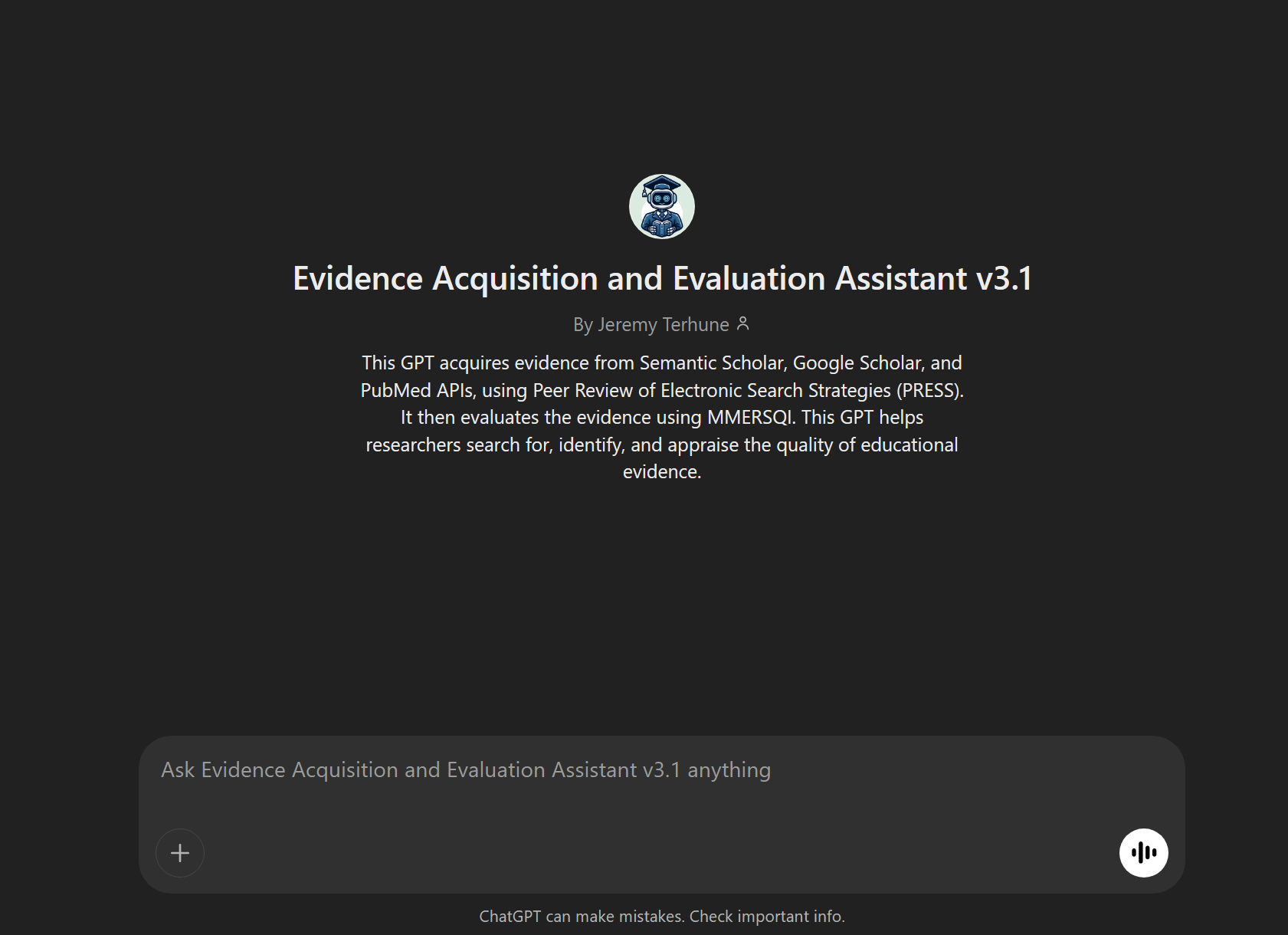Evidence Acquisition and Evaluation Assistant
Evidence informed decisions.

Background
This AI assistant was designed and developed as part of a research study in my master’s program at University of Central Florida (UCF). It was built with input and collaboration from Henry Moon, Dina Kurzweil, Okan Arslan, Meredith Ratliff, Josh Zahn, and Atsusi “2c” Hirumi. This assistant’s task is to acquire evidence from online databases like Semantic Scholar, Google Scholar, and PubMed, then evaluate the evidence for accuracy and quality.
First, the assistant develops a search strategy using the user’s prompt and the Peer Review of Electronic Search Strategies (PRESS) framework. Once evidence is acquired, the assistant compiles a report of the evidence using the Preferred Reporting Items for Systematic reviews and Meta-Analysis (PRISMA) research methods. When full papers are not available, only the metadata is used to prepare the PRISMA report. If full papers are available, or provided to the assistant manually, the assistant evaluates all the meta-data along with the provided evidence using the Modified Medical Education Research Study Quality Instrument (MMERSQI) framework.
One of our goals for this project was to build an assistant with no coding that could be shared at scale for little or no cost. For those reasons, this assistant was built using the ChatGPT Editor, which allows ChatGPT Plus users to build custom ChatGPT assistants that can be shared with others. This method makes it easy to set up, deploy, and update a custom chat bot, with no need.
Evidence Acquisition and Evaluation Assistant
This AI assistant requires a ChatGPT Plus account to access.

